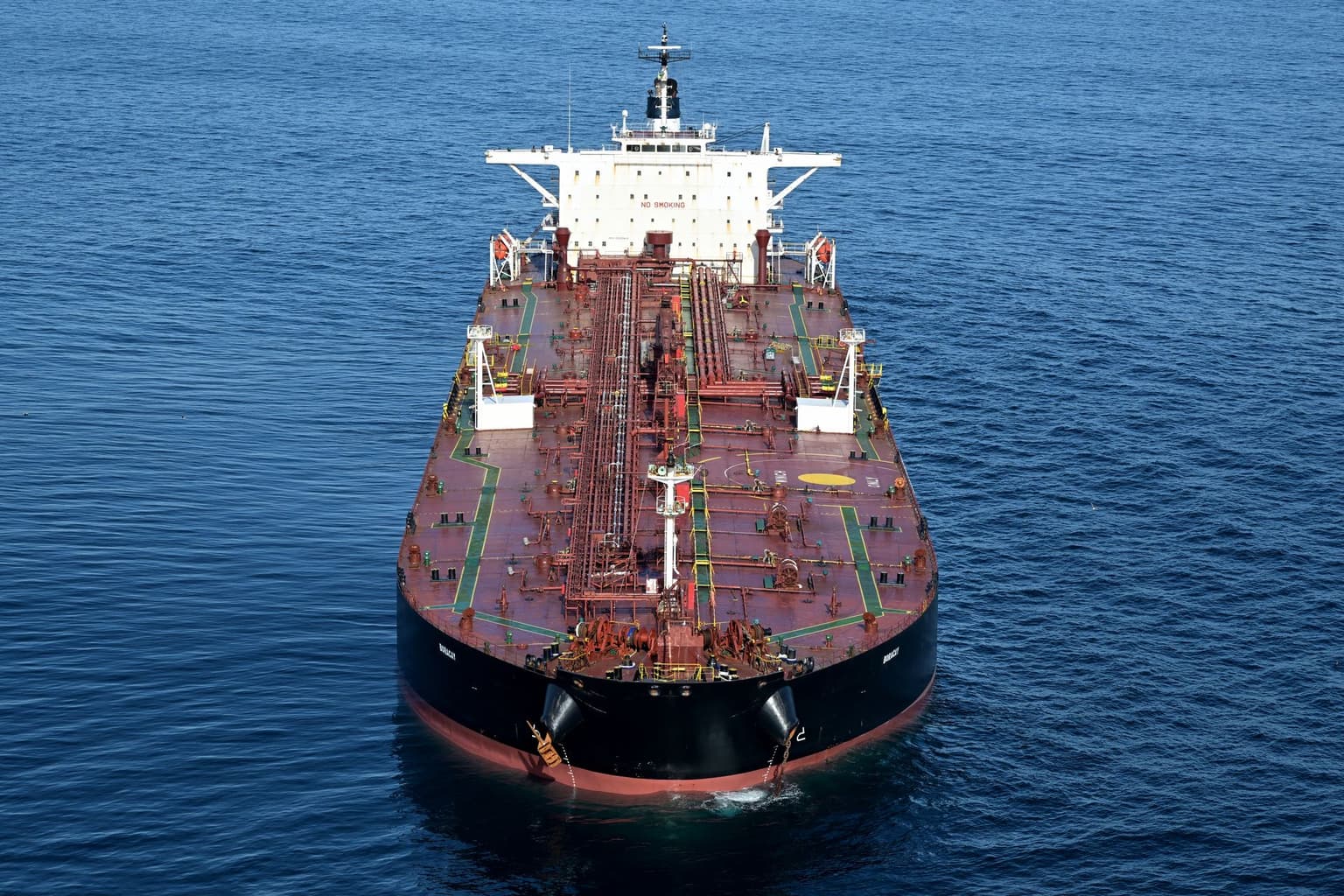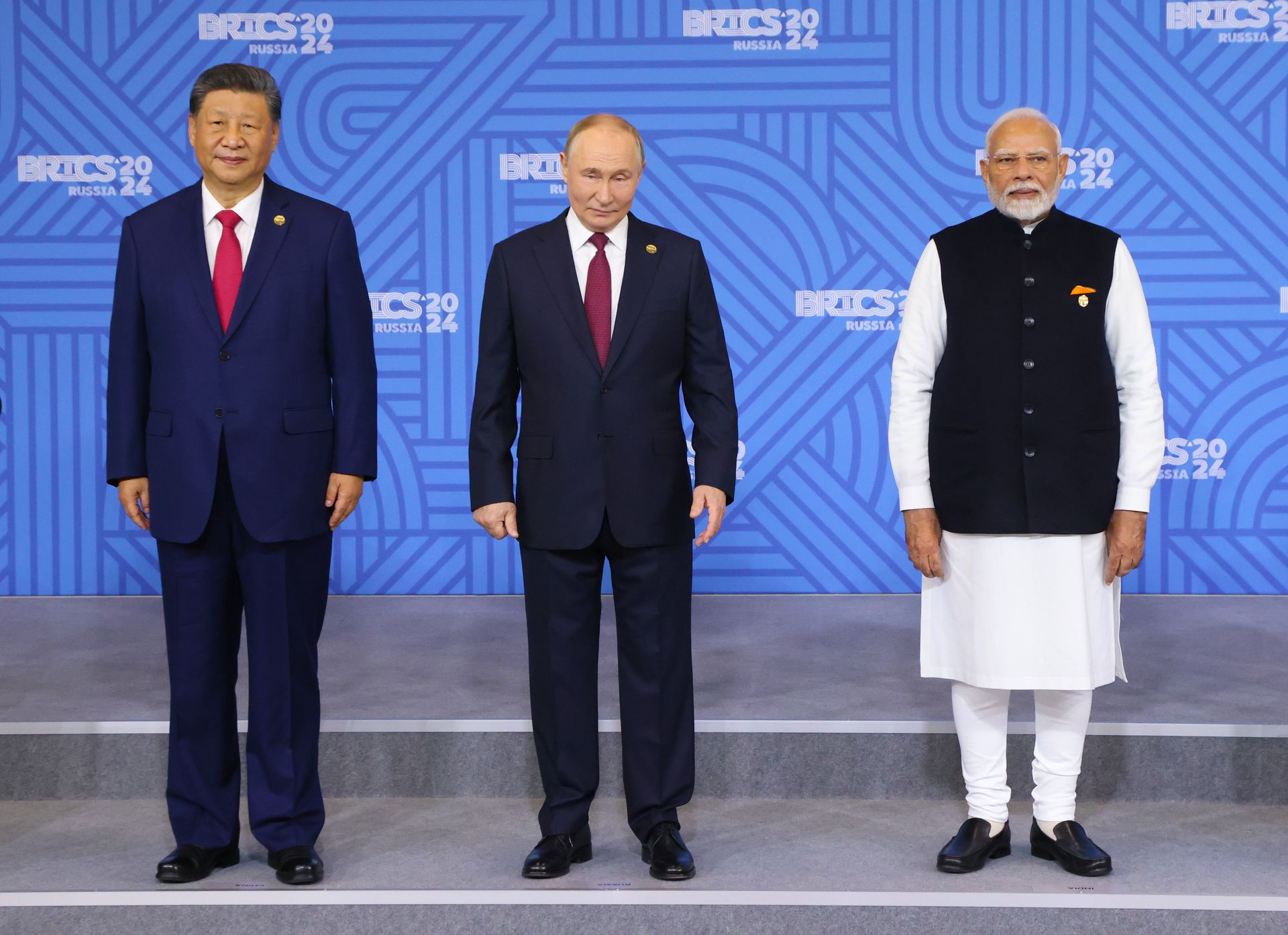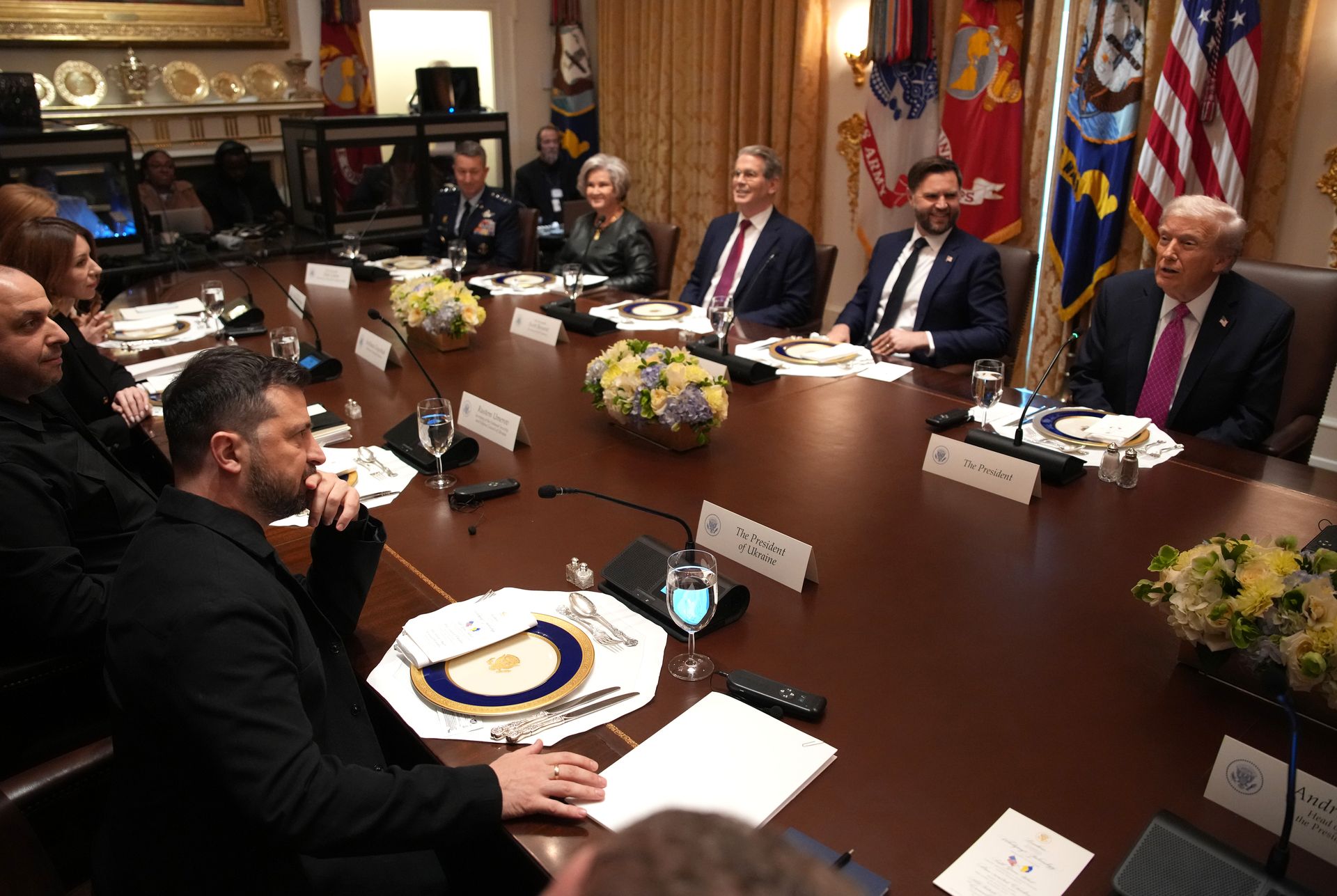EU mulls hitting Russia where it hurts — its shadow fleet

An aerial view shows the tanker Boracay, part of Russia’s so-called “shadow fleet,” off the coast of Saint-Nazaire, France, on Oct. 1, 2025. Boracay is suspected of involvement in drone flights over Denmark between Sept. 22 and 25. (Damien Meyer / AFP via Getty Images)
LUXEMBOURG, Luxembourg — The EU is preparing to strengthen its authority to board and inspect tankers linked to Russia's so-called shadow fleet and is negotiating with some of the flag and coastal states to take measures, according to a draft proposal by the EU's diplomatic service (EEAS), seen by Kyiv Independent.
Moscow's covert network of tankers, which operate under false flags, obscure ownership, and often nonexistent insurance, deliberately sail in legal grey zones of international waters and have become a key source of income for Russia's oil export strategy since sanctions were imposed following its full-scale invasion of Ukraine.
These vessels "pose threats to the environment and to navigation safety" and could be "used as platforms for hybrid attacks against EU territory," according to a document shared with the bloc's member states before the Oct. 20 meeting of the bloc's foreign ministers.
So far, EU member states have had few options to inspect, board, or confiscate the tankers, especially when they were sailing in international waters.
Recent cases of intervention — the raid on Eagle S, which is accused of attacking and damaging five telecom cables in the Gulf of Finland, and French soldiers boarding the oil tanker Boracay off the coast of Denmark — remain one-offs.
"Member States are encouraged to actively use all opportunities offered by Law of the Sea (UNCLOS), together with relevant national legislation, to disrupt the activities of the shadow fleet and to send a warning signal to industry and crews," the document states.

"The EU could support Member States in their efforts if they agree to grant the EU the right to negotiate agreements on their behalf for pre-authorised boardings for inspections," it adds.
According to the proposal, the EU's diplomatic service this month has launched work on a draft declaration to reinforce the International United Nations Convention on the Law of the Sea (UNCLOS), which sets the legal framework for all oceans and seas.
A declaration "would provide an additional tool to member states to boost the effectiveness of enforcement actions, including providing a basis to board shadow fleet ships," which would give the EU's chief diplomat, Kaja Kallas, a mandate to "seek the authorization of the Council to open negotiations for bilateral agreements with identified flag states," the document states.
A designated special coordinator will be put in place to “gather best practices” from across the EU member states, Kallas told reporters in Luxembourg. “To further cut Russia’s war funds, we need a more robust EU-wide approach against the shadow fleet,” Kallas said.
The proposal, which could be finalised before the end of the year, envisions "possible bilateral agreements between the flag states and the EU on pre-authorized boardings for inspections."
The EU side said it was already approaching priority flag states to curb support services to the fleet and "aims to mobilize its various tools to provide support and incentives to flag states to deregister sanctioned vessels."
Panama, whose maritime authority runs one of the largest ship registries globally, is among the countries that have "agreed to deregister vessels sanctioned by the EU and recently decided to stop registering vessels older than 15 years."
However, most of the problematic flag states are typically smaller, or island states, the Kyiv Independent has learned from several Baltic Sea countries, which would make for a vast range of such agreements that need to be put in place.
In parallel, Brussels also plans to "continue to propose additional listings of vessels and shadow fleet ecosystem operators such as insurers and flag registries" as part of future EU sanctions packages. Those further options would "include targeting the provision of logistical support to shadow fleet vessels, such as oil bunkering."











